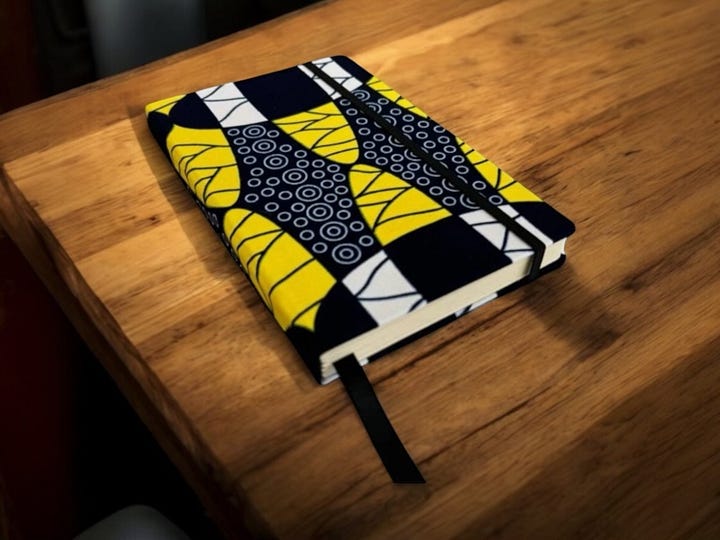There is a map, a well-trodden path, a collective blueprint that society hands you the moment you’re old enough to walk in a straight line.
Follow it, and you’ll be rewarded with stability, predictability, and a social nod of approval. Stray from it, and you risk being seen as a deviant, a misfit, or worse—a fool who refuses to capitalize on the “obvious” pathways to success.
This phenomenon plays out on both macro and micro levels. At the macro level, societies design institutions to mold us into roles that serve the collective function.
Education systems prioritize standardized learning over creative exploration. Corporate hierarchies reward compliance over ingenuity. Even cultural narratives reinforce that the good life consists of respectable credentials, a mortgage, and a LinkedIn profile that screams “upward mobility.”
At the micro level, our families, friends, and romantic partners often serve as enforcers of these roles. It’s not always malicious. Rather, many just assume that happiness is a function of fitting in, not breaking out.
So here’s the rub—this pressure to conform doesn’t just shape our choices. It can erode our very sense of self.
The Role vs. The Identity: A Windy City Revelation
Years ago, while living in Chicago, I found myself sitting in a therapist’s office, grappling with a dilemma that had come to define the relationship I was in at the time.
It was the case where my partner wanted me to be someone that I was not. To her, identity and role were indistinguishable, and she saw my value primarily as a means to a financial end—a pipeline to money, stability, and the kind of life she had been socialized to expect.
The problem was that I didn’t fit into that template. It wasn’t just that I had different ambitions; I had a fundamentally different way of moving through the world.
Where she saw a “provider,” I saw a “creator.” Where she saw financial security as the highest priority, I saw freedom of expression as non-negotiable. Our conflict wasn’t about money itself, but about what it represented—control, expectation, and an attempt to force me into a role that wasn’t mine to play.
The Adlerian therapist, after hearing my struggle, posed a question that still reverberates in my mind today:
“Are you being asked to play a role, or are you being asked to give up your identity?”
That question illuminated everything. A role is something we assume temporarily; it’s a function we perform within a given context. But identity? That’s who we truly are.
So when someone asks us to sacrifice identity in favor of a role, they’re asking us to abandon our true self in service of their expectations.
I Ching 43: Recognizing and Correcting the Causes of Decay
The wisdom of the I Ching, particularly Hexagram 43 (决 / Guai), speaks to this moment of reckoning. It is the hexagram of resolute action, a warning against tolerating what corrodes and decays one’s integrity. In its imagery, it speaks of eliminating what is harmful before it festers too deeply.
In relationships and in life, failing to recognize when we are being bent into something we’re not is precisely the kind of slow decay the I Ching warns about. The text advises that clarity and decisiveness are required—one must act, not out of anger, but out of necessity, cutting away that which threatens the purity of one’s being.
It became clear to me that I had to correct the imbalance. My relationship, however much love and history it contained, was asking me to make a trade I could not afford. And so, I did what Hexagram 43 demands: I made a clean break.
Taoist and Confucian Correctives: Untethering from Expectations
If you, too, find yourself struggling with the pressures of conformity, both Taoism and Confucianism offer pathways to reclaiming the self—one through detachment, the other through rightful alignment.
🧘🏿 The Taoist Path: Flowing Instead of Forcing
Lao Tzu, in the Tao Te Ching, reminds us that forcing oneself into a mold leads to suffering. The Taoist response to societal and relational pressures is not rebellion, but redirection. Like water, which does not struggle against the rock but simply finds another path, we must navigate around expectations rather than be crushed by them.
If society says, “This is the only way,” the Taoist response is, “Then I will find another way.”
If a partner says, “You must be this to be valuable,” the Taoist response is, “Value is intrinsic, not prescribed.”
Instead of fighting against the tides of collective expectation, one learns to step aside and let them pass, choosing one’s own current instead.
🧘🏿 The Confucian Path: Aligning with One’s True Role
Unlike Taoism, which often emphasizes stepping away from external pressures, Confucianism recognizes that roles are part of life—but they must be the right ones. The key Confucian concept here is rectification of names (正名, Zhengming). This principle suggests that society functions best when people act in accordance with their true nature, not in pretense.
If you are a scholar, do not pretend to be a soldier.
If you are an artist, do not pretend to be an accountant.
If you are a free spirit, do not pretend to be a corporate cog.
To live with integrity is not to reject all roles, but to embrace the right one—the one that is in alignment with who you truly are.
The Final Lesson: You Do Not Owe the World an Imitation of Yourself
As I reflect on that moment in Chicago, I realize now that society, relationships, and even well-intentioned loved ones often conflate role and identity. They assume that because a certain path worked for others, it must work for you. They believe that deviation is risk, rather than a necessity for authenticity.
But here’s the truth: You do not owe the world an imitation of yourself. You owe it the real thing.
The consequences of nonconformity can be harsh—ostracization, misunderstanding, even the loss of certain comforts. But the cost of submission is far greater. To lose oneself in the roles others impose is to die a slow death.
The remedy?
Recognize the decay, correct it, and walk your own path.
After all, as the Taoist sages knew well, the river does not ask for permission to carve a new course. It simply flows.
Folks, we have some tough times in front of us. So if you find my nomadic wisdom valuable in helping to set a positive tone for your day, please join me as a paid member supporter at only $6.00/month or $60.00/year.
Or feel free to tip me some dirty chai latte love here if you feel so inclined.
Every bit counts as I strive to deliver high quality feature articles into your inbox on a daily basis. Never any paywalls, just my Taoist raw thoughts which are open to everyone on what it means to be human.
Your contributions are appreciated in support of my full time work and calling.
Much Love,
Diamond- Michael Scott — aka The Chocolate Taoist
PS: Here are a couple of other simple ways you can support others while supporting yourself
Reshare your favorite takeaway on Substack NOTES
SHARE this article and publication 👇
Join and promote my new Chocolate Taoist “Nomadic Wisdom Journaling Program” HIGHLY RECOMMEND 💥








There were so many awesome golden nuggets in this, Diamond-Michael. This one stood out the most: But here’s the truth: You do not owe the world an imitation of yourself. You owe it the real thing.
I couldn't agree more with this post, Diamond-Michael. Thanks for posting.